|
Media contacts
Sigma Xi Jason Papagan - [email protected] Rita Allen Foundation Randi Chmielewski - [email protected] Journal of Science Policy & Governance Andre Porter - [email protected] WASHINGTON, DC (June 12, 2023) - The Journal of Science Policy & Governance (JSPG), Sigma Xi, and the Rita Allen Foundation are pleased to announce a call for papers and competition on: Civic Science for Transformative Policy Solutions to Societal Challenges. Students, postdocs, policy fellows, early career researchers and young professionals from around the world are invited to submit bold and innovative policy ideas to develop capacity for developing the next generation of civic scientists—boundary-spanning leaders building new relationships and collaborations enabling individuals across several sectors of society to shape science and benefit from its power and promise. Submission deadline: October 29, 2023. “Today’s young scientists play a critical role in addressing important societal challenges through policy change. Science policy has the potential to bridge the gap between science and society through civic science. JSPG is thrilled to launch this call for papers and competition in developing future policy leaders to improve our society,” said Adriana Bankston, JSPG CEO and Managing Publisher. Following submission review via the JSPG editorial review process, a competition review committee will select the top 3 publications. Authors of the top 3 articles will receive monetary awards and present their published papers at future Sigma Xi and Rita Allen Foundation events. "The Rita Allen Foundation is pleased to support this special civic science issue of JSPG. Our goal is to create a culture of civic science—seeding networks to accelerate learning, inclusion, and impact to ensure that science and evidence help to inform solutions to society’s most pressing problems. Policy can be a powerful civic science tool, making equitable systems and innovations possible through partnerships between communities, scientists, and public leaders to link scientific methods with democratic decision-making," said Elizabeth Christopherson, President and CEO of the Rita Allen Foundation. This Special Issue is supported in-kind by outreach partners from Advancing Research Impact in Society (ARIS), Union of Concerned Scientists (UCS), as well as Engineers and Scientists Acting Locally (ESAL), and the California Council on Science and Technology (CCST). JSPG, Sigma Xi and the Rita Allen Foundation will organize 2 webinars with expert perspectives on civic science, and a policy writing workshop to help prospective authors improve their submissions to the issue. The events will be co-organized with and include participants from outreach partner organizations. Register for the events here. "Sigma Xi is thrilled to partner with the Rita Allen Foundation and JSPG to publish a special issue on civic science. This call for papers provides the unique opportunity for policy thinkers to articulate policies that can advance civic science as well as improve the use of science in public policy for the good of society. We hope to illustrate a new vision for science that is more collaborative, inclusive, and impactful," said Jamie Vernon, Executive Director and CEO of Sigma Xi, and Publisher of American Scientist. ### About JSPG
The Journal of Science Policy & Governance (JSPG) is an international, open access peer-reviewed publication managed by and for students, policy fellows, and young scholars in science, technology, and innovation policy. JSPG publishes high-quality articles covering the widest range of topics in formats that are accessible to policymakers. Since 2011, JSPG has served as a vehicle for students and early career researchers to bolster their research and writing credentials in science policy. Visit sciencepolicyjournal.org and follow on Twitter @SciPolJournal to learn more. About Sigma Xi Sigma Xi, The Scientific Research Honor Society, founded in 1886, is the world’s largest multidisciplinary honor society exclusively for scientists and engineers. The Society’s mission is to enhance the health of the research enterprise, foster integrity in science and engineering, and promote the public understanding of science for the purpose of improving the human condition. Over 500 Sigma Xi chapters can be found wherever scientific research is undertaken at colleges, universities, government laboratories, and industry research centers worldwide. Among our 100,000 inductees, more than 200 are Nobel Prize winners. The Society is based in the Research Triangle Park, North Carolina. Visit https://www.sigmaxi.org/ and follow on Twitter @SigmaXiSociety to learn more. About Rita Allen Foundation The Rita Allen Foundation, established in 1953, is a leading philanthropic organization that invests in the earliest stages of big ideas that have the power to be transformative. With its civic science work, the Foundation invests in collaborative efforts in science, communities, and civic life to address complex and pressing problems. The Foundation focuses especially on developing boundary-spanning networks of early-career leaders, philanthropic partners, and scientific organizations to co-create learning and frameworks that increase the societal benefit and impact of science as a public good. Visit https://ritaallen.org/ and https://civicsciencefellows.org or follow on LinkedIn to learn more. About ARIS The Center for Advancing Research Impact in Society (ARIS) works with U.S. and international scientists and engagement practitioners to build capacity, advance scholarship, grow partnerships and provide resources to help them engage with and demonstrate the impact of research in their communities and society. The work of the center is beneficial to researchers who increase knowledge and discovery, to practitioners who collaborate with researchers and community stakeholders, and to the public who benefit from research and education advancements. ARIS is home to a thriving community of practice including more than 1,000 members. Visit https://researchinsociety.org/ and follow on Twitter @arisimpacts to learn more. About UCS The Union of Concerned Scientists is a national nonprofit organization founded more than 50 years ago by scientists and students at the Massachusetts Institute of Technology.Its mission is to use rigorous, independent science to solve our planet's most pressing problems. Joining with people across the country, we combine technical analysis and effective advocacy to create innovative, practical solutions for a healthy, safe, and sustainable future. Visit ucsusa.org and follow on Twitter @UCSUSA to learn more. About ESAL Engineers and Scientists Acting Locally (ESAL) is a national organization dedicated to increasing local civic engagement by people with backgrounds in science, technology, engineering, and mathematics (STEM). Visit https://esal.us/ and follow on Twitter @ESAL_us to learn more. About CCST The California Council on Science and Technology is a nonpartisan, nonprofit organization established via the California State Legislature in 1988. We engage leading experts in science and technology to advise State policymakers, ensuring that California policy is strengthened and informed by scientific knowledge, research, and innovation. Visit https://ccst.us/ and follow on Twitter @CCSTorg to learn more. MEDIA CONTACTS
Jason Papagan |
JSPG NewsAll the latest news from the Journal of Science Policy & Governance. Archives
April 2024
Categories
All
|
- Home
- About
-
Volumes
- Volume 24 Issue 01
- Sigma Xi and Rita Allen Foundation - Civic Science for Transformative Policy Solutions to Societal Challenges
- Volume 23 Issue 01
- APS Policy and Governance on Science, Technology and Global Security
- IAI Development Policy and Global Change Science to Achieve the Vision of Sustainable Americas
- Volume 22 Issue 01
- GHFUTURES2030 Strengthening Youth-centered Policy and Governance of Digital Transformations in Health.
- UNESCO AND MGCY OPEN SCIENCE POLICIES AS AN ACCELERATOR FOR ACHIEVING THE SUSTAINABLE DEVELOPMENT GOALS
- Volume 21 Issue 01 >
- JSPG and UCL STEAPP Special Topics: Innovations in Science Diplomacy >
- Sigma XI-JSPG Special Issue: Re-envisioning STEM Education and Workforce Development for the 21st Century
- Volume 20 Issue 01
- JSPG Volume 19 Issue 01 (10 Years of Publishing)
- Special Issue: 2021 NSPN-JSPG Policy Memo Competition
- Special Issue: Shaping the Future of Science Policy
- JSPG-UK SIN Special Issue: Climate Change Solutions
- Volume 18 Issue 01
- Special Issue: 2020 NSPN-JSPG Policy Memo Competition
- Volume 17 Issue 01 (Supported by AAAS STPF)
- JSPG-UN MGCY Special Issue: Impacts of Emerging Technologies
- Volume 16 Issue 01
- Volume 15 (Supported by CSPC)
- Special Issue: 2019 NSPN-JSPG Policy Memo Competition
- Volume 14
- Volume 13
- Volume 12
- Volume 11
- Volume 10
- Volume 9
- Volume 8
- Volume 7
- Volume 6
- JSPG-UCS Special Issue: Healthy Food Policy
- Volume 5
- Volume 4
- Special Issue: Hot Topics 2013
- Volume 3
- Volume 2
- Volume 1
- Submit to JSPG
- Announcements
- Events
- Training
- Media Mentions
- Policy in action
- Podcast

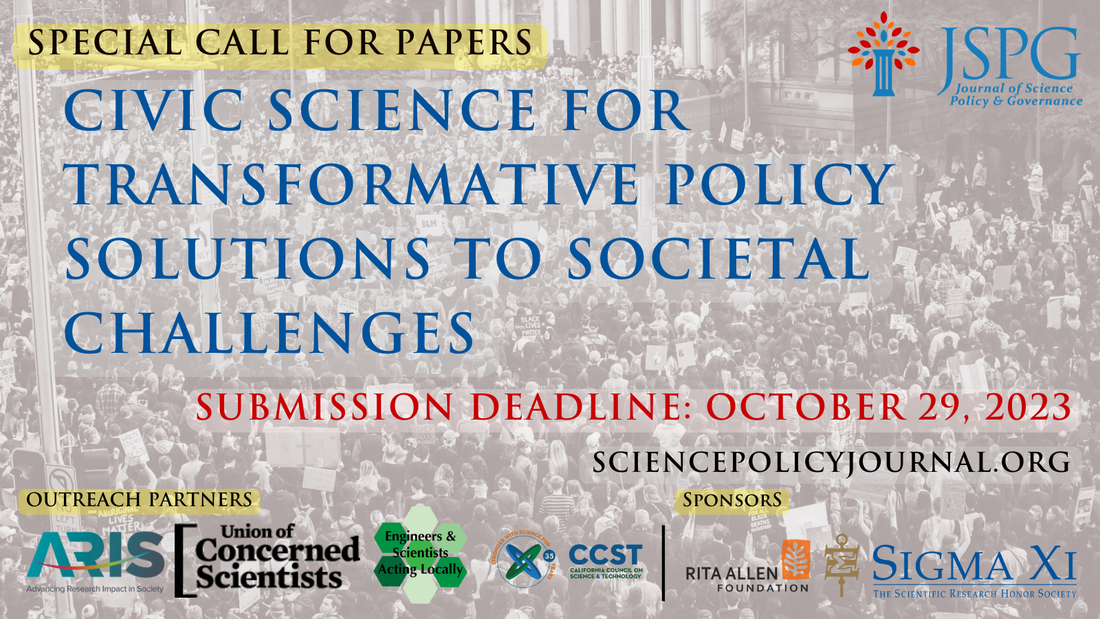
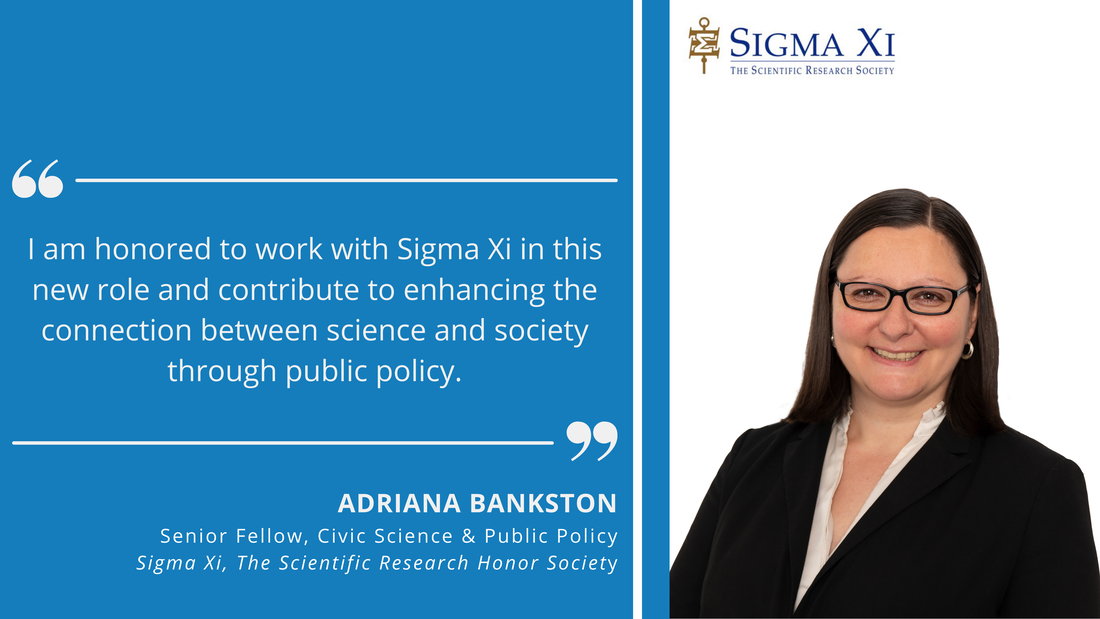

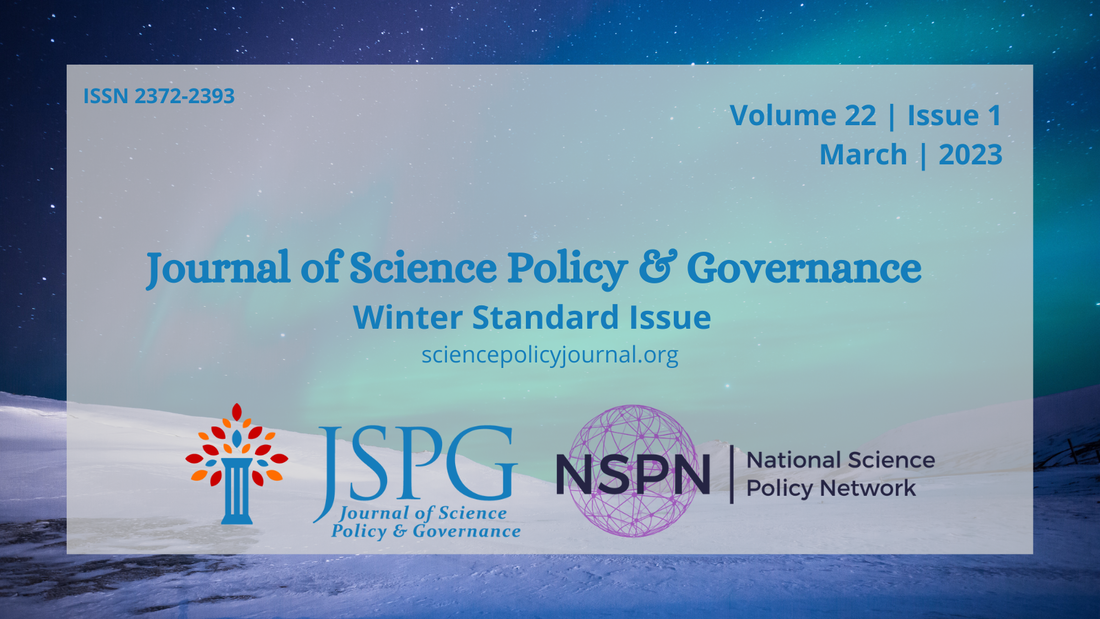
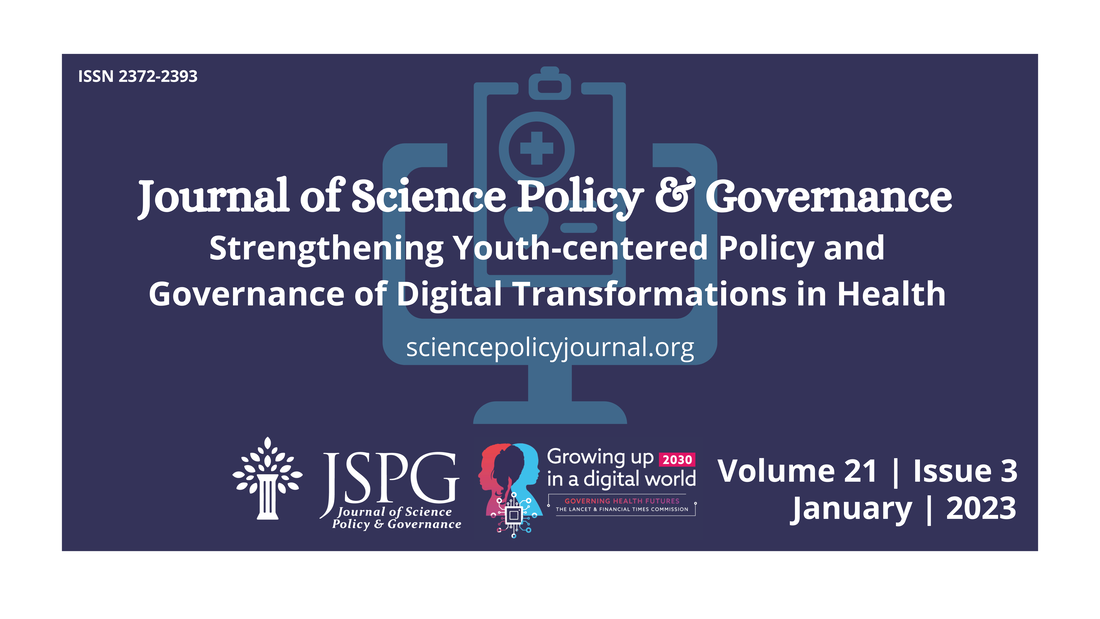
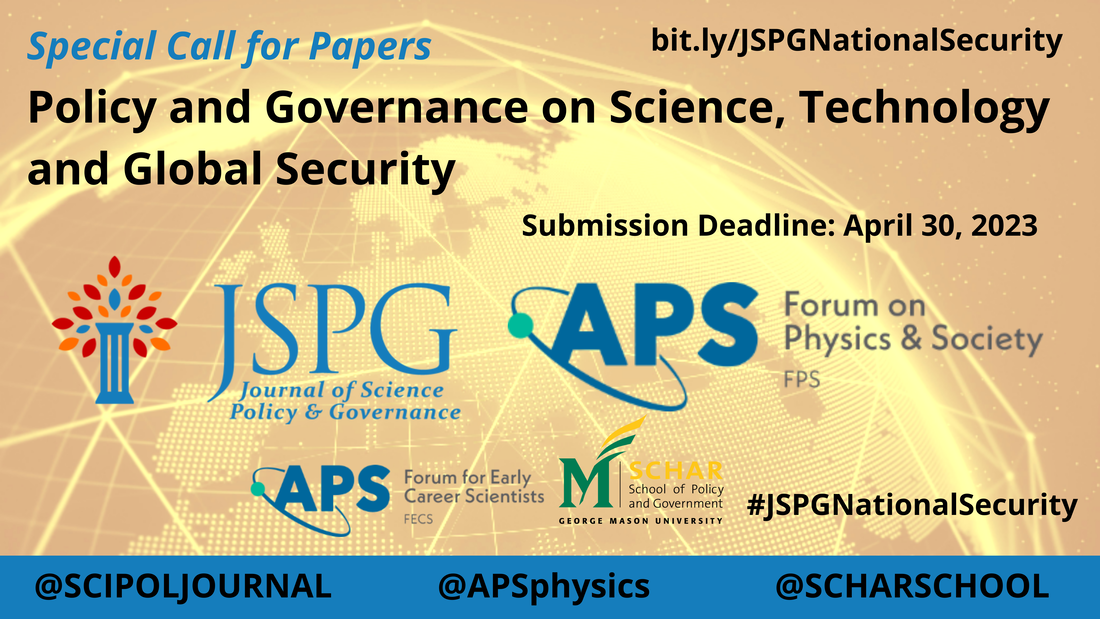

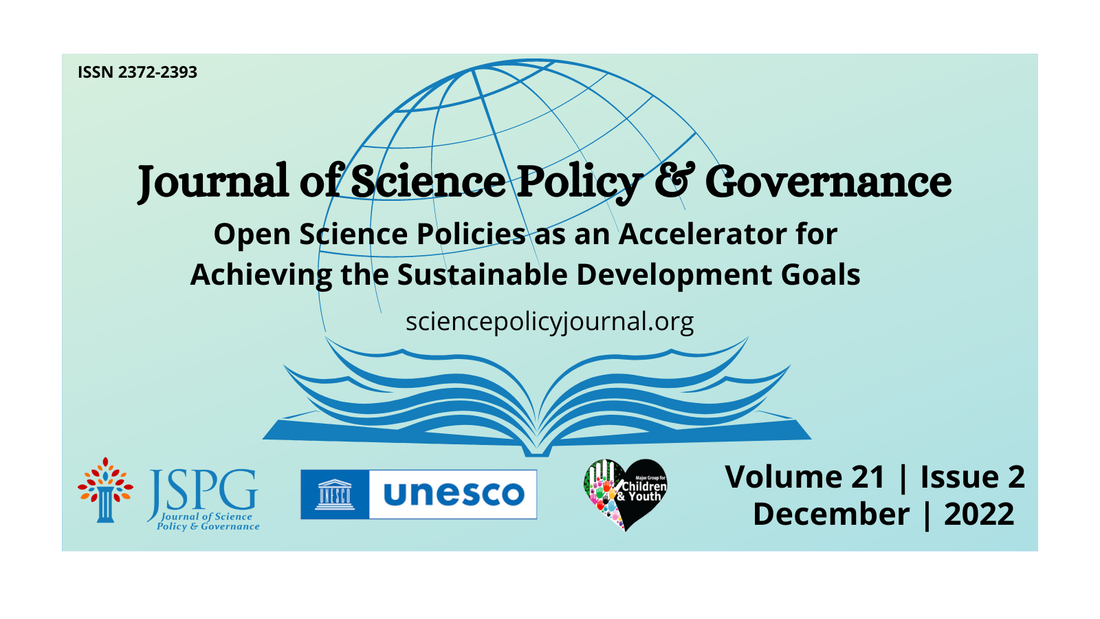
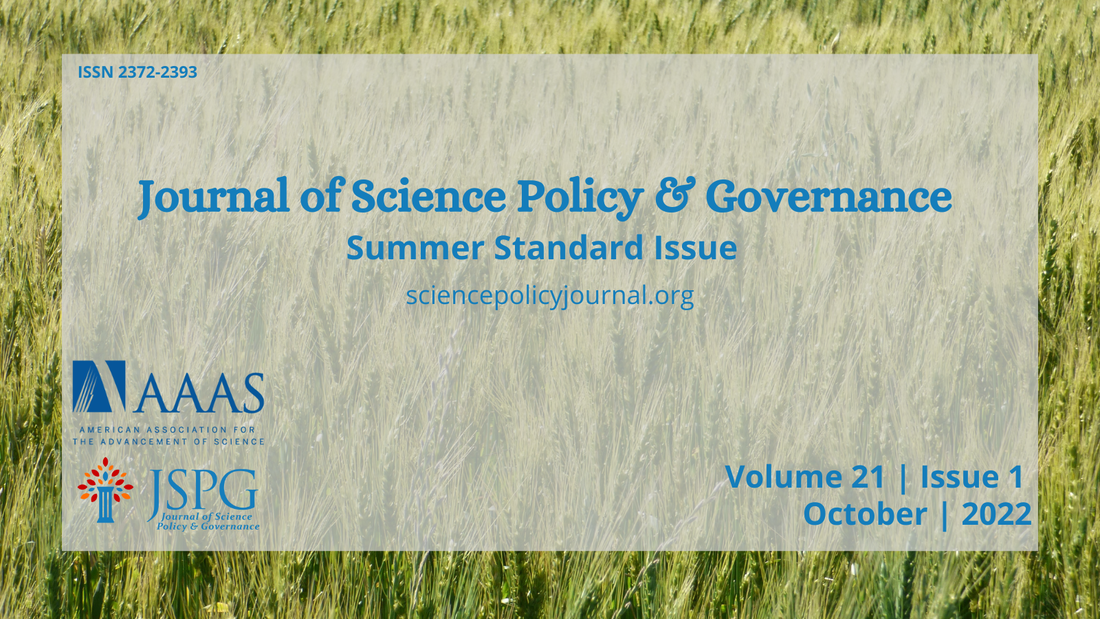
 RSS Feed
RSS Feed
